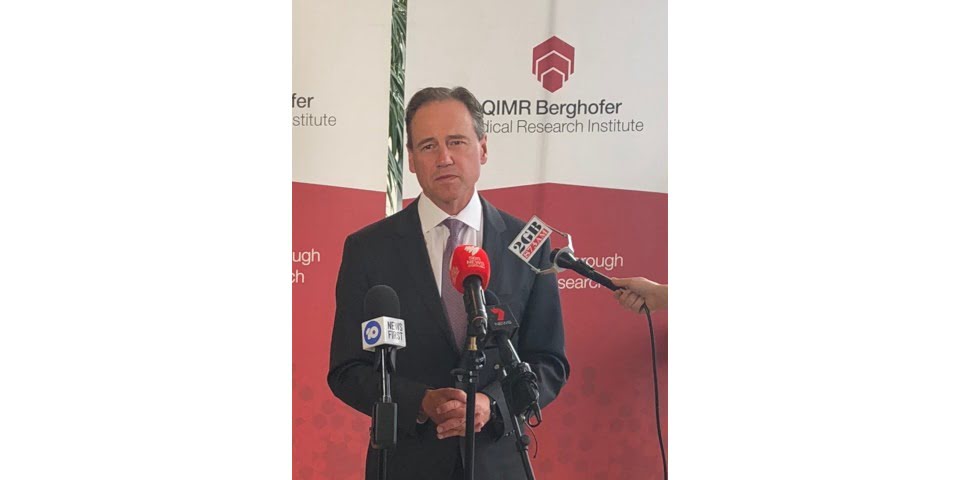Researchers are appealing for 5,000 Aussie volunteers for the world’s largest genetic bipolar disorder investigation.
At a media event the federal Health Minister Greg Hunt, former NRL player and study ambassador Dan Hunt, geneticist and study co-Investigator, Professor Nick Martin, Professor Nicholas Glozier, psychiatrist and patients raised awareness for the launch of the world’s largest genetic investigation into bipolar disorder, in Sydney.
The Australian Genetics of Bipolar Disorder Study aims to identify the genes that predispose people to bipolar disorder in order to develop more effective, personalised treatments, and ultimately, find a cure for the illness.
QIMR Berghofer Medical Research Institute (QIMR Berghofer) is the base for the Australian arm of the international study, with collaborating centres throughout North America and Europe.
The study aims to recruit 100,000 participants, with Australian researchers hoping to contribute 5 per cent of the overall study population.
Approximately one in 50 Australians (1.8 per cent) will experience bipolar disorder during their lifetime. The complex disorder, which occurs commonly in families, typically results from a combination of genetic and environmental influences. Those living with bipolar disorder may be at higher risk of developing other health issues, including alcohol and drug abuse, anxiety, cardiovascular disease, diabetes and obesity. They also carry a 15 times greater risk of suicide than the general population, accounting for up to 25 per cent of all suicides.
According to Professor Nick Martin, Australian study co-investigator and Head of the Genetic Epidemiology Research Group, QIMR Berghofer, Brisbane, researchers are seeking 5,000 male and female Australian volunteers aged 18 and older, who are currently, or have been treated in the past for bipolar disorder. Their involvement will allow researchers to shed light on the genes that predispose people to the illness to ultimately develop more personalised treatments.
“There is a strong link between genetics and bipolar disorder. The human genome contains around 20,000 genes. Although we do not yet know all the genes that influence bipolar, what we do know is how to identify them. We just need a large enough study, performed in the right way, to identify these genes.”
According to Prof Ian Hickie, AM, study co-investigator and co-Director for Health and Policy at Brain and Mind Centre, The University of Sydney, “participation in the study is free and simple. Volunteers complete a 20-minute online survey, and those who qualify will be asked to donate a saliva sample.
“Identification of the genes that predispose people to bipolar disorder will revolutionise future research into the causes, treatment and prevention of the illness.”
To volunteer for the Australian Genetics of Bipolar Disorder Study, visit: www.geneticsofbipolar.org.au, E: gbp@qimrberghofer.edu.au or P: 1800 257 179.






